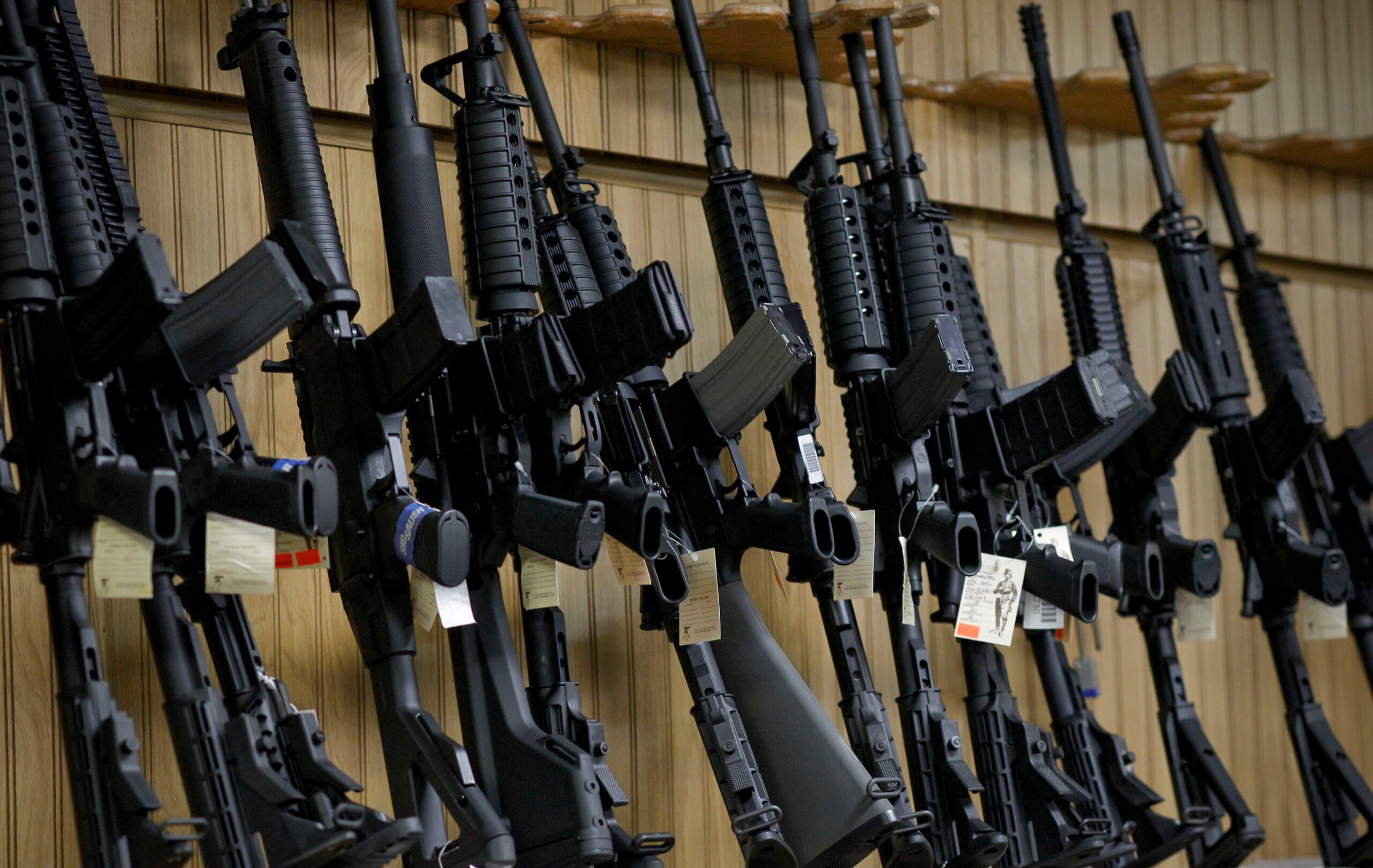Update: This story has been updated to reflect that federal courts have issued or clarified injunctions, barring the ATF from enforcing the rule against members of the Firearms Policy Coalition, the Gun Owners of America, and the Second Amendment Foundation, among others.
A federal appeals court has temporarily blocked the Bureau of Alcohol, Tobacco, Firearms and Explosives from fully enforcing a new rule regulating guns equipped with pistol braces, a popular gun accessory that has been used in some recent mass shootings. The scope of the court’s injunction is likely to be limited, however, and is unlikely to prevent the ATF from enforcing the rule nationally.
The Fifth Circuit Court of Appeals, which covers Texas, Louisiana, and Mississippi, granted the injunction on May 23 in response to a court challenge attempting to block enforcement of the ATF’s rule. Pistol braces are popular accessories intended to increase the accuracy and stability of AR-15-style pistols. The rule requires owners of the devices to either remove and destroy the accessories, or register the braced firearms with the ATF as short-barreled rifles. Until May 31, doing so was free, but going forward, registration will require a $200 tax stamp.
In granting its injunction, the appeals court appeared to only block enforcement against the plaintiffs in this specific case, Mock v. Garland. The plaintiffs include William Mock and Christopher Lewis, two Texans who own braced firearms; Maxim Defense, a company that sells firearms equipped with pistol braces; and the Firearms Policy Coalition, a pro-gun rights legal advocacy group.
After the FPC requested clarification, the court wrote that the injunction also applies to members of the coalition and customers of Maxim Defense.
Mock v. Garland is one of more than a half dozen pending lawsuits over the rule. In the days leading up to the May 31 deadline, three other federal judges in the Fifth Circuit followed suit and issued separate injunctions, barring the ATF from enforcing it against members of the Gun Owners of America, Texas state employees, and the Second Amendment Foundation.
The rulings are a significant blow to the ATF’s plans to regulate pistol braces, but they are not national injunctions and have only been issued by courts in the conservative Fifth Circuit. The agency is still able to carry out enforcement against other owners and sellers of pistol-braced firearms.
The Department of Justice and ATF declined to respond to questions from The Trace seeking clarification over whether the appeals court’s order would affect its plans to enforce the rule. “ATF is unable to comment on this litigation related to short-barreled rifles,” the agency’s deputy chief of public affairs, Erik Longnecker, wrote in an email to The Trace.
Gun owners use pistol braces to increase the accuracy of assault-style pistols — weapons that combine the maneuverability of a handgun with the increased firepower and capabilities of rifles — while maintaining concealability. While pistol braces were originally marketed as a way to stabilize a firearm against the shooter’s arm, they can also be placed against the shoulder like a typical rifle stock. Estimates from the ATF and the Congressional Research Service show that millions of pistol braces may be in circulation.
The Biden administration first proposed regulating pistol braces in 2021, following a mass shooting in Boulder, Colorado, in which a shooter used a firearm equipped with one of the devices to kill 10 people at a grocery store. The shooter who killed six people at a Nashville Christian school in March also used a firearm equipped with a pistol brace.
The rule has been met with fierce resistance from pro-gun rights groups and Republicans since it was introduced.
The rule change reclassified guns previously considered pistols as short-barreled rifles if they are equipped with a pistol brace and have a barrel shorter than 16 inches. Doing so brings those firearms under the purview of the National Firearms Act, a law that has imposed tight restrictions on weapons like machine guns since the 1930s.
The injunction is unlikely to stay in place for long: the Fifth Circuit has scheduled oral arguments on June 29 in New Orleans.
Correction: An earlier version of this story misstated that current owners of braced firearms must pay a $200 tax when registering their weapons under the National Firearms Act to come into compliance with the ATF’s rule. The tax is waived for current owners until May 31.

